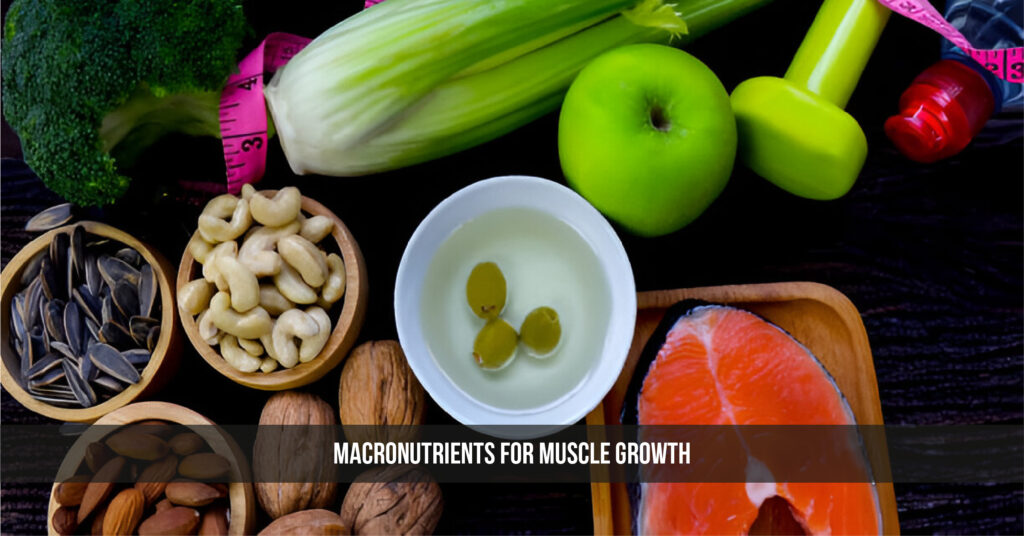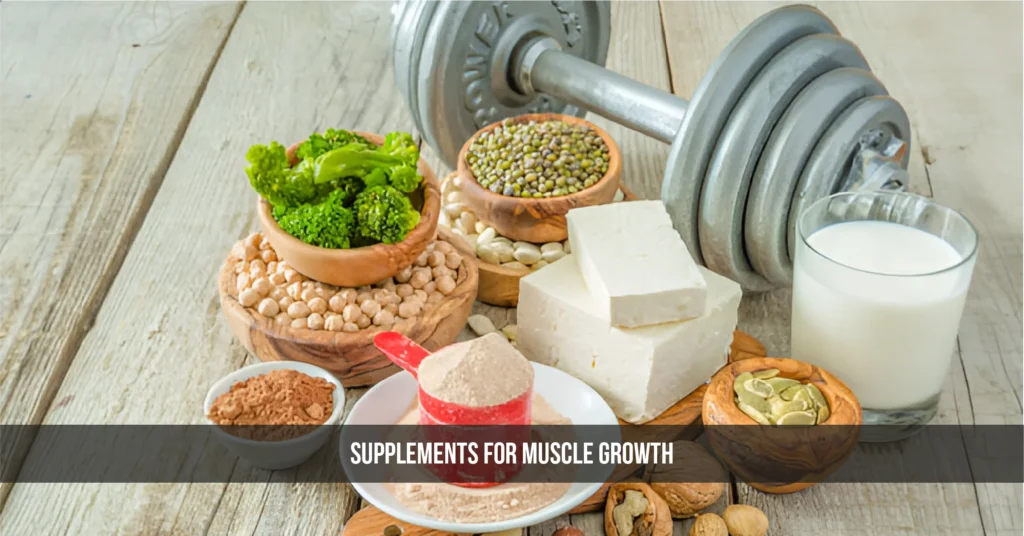What is the Best Diet for Muscle Growth?
Building muscle isn’t just about lifting weights—it’s about fueling your body with the right nutrients. Did you know that 80% of muscle growth is influenced by your diet? Whether you’re a gym newbie or a seasoned lifter, understanding the best diet for muscle growth can make all the difference. In this article, we’ll break down everything you need to know about the ideal diet to maximize muscle gains, from macronutrients to meal timing and beyond.
Table of Contents
Understanding Muscle Growth
How Does Muscle Growth Work?
Muscle growth, or muscle hypertrophy, happens when you challenge your muscles through resistance training, causing tiny tears in the muscle fibers. These tears then repair and grow stronger, but only if you provide your body with the right nutrients. Without proper nutrition, your muscles won’t have the building blocks they need to recover and grow.
The Role of Nutrition in Muscle Growth
Nutrition plays a starring role in muscle growth. Think of your body as a construction site: protein is the bricks, carbs are the energy to lay them, and fats are the glue holding everything together. Without these key nutrients, your muscles can’t rebuild effectively.
The Importance of Resistance Training
While diet is crucial, it’s only half the equation. Resistance training—like weightlifting or bodyweight exercises—creates the stimulus needed for muscle growth. Pairing the right diet with consistent training is the ultimate combo for building muscle.
Macronutrients for Muscle Growth
The Big Three: Protein, Carbs, and Fats
When it comes to muscle growth, macronutrients are your best friends. Here’s how each one contributes:
Protein: The Building Block of Muscle
Protein is essential for repairing and building muscle tissue. Aim for 0.8 to 1.2 grams of protein per pound of body weight daily, depending on your activity level. Great sources include:
- Animal-based: Chicken, turkey, eggs, fish, and lean beef.
- Plant-based: Tofu, lentils, chickpeas, and quinoa.
Carbohydrates: The Energy Source
Carbs are your body’s primary energy source, especially during intense workouts. They replenish glycogen stores, which fuel your muscles. Opt for complex carbs like:
- Whole grains (brown rice, oats)
- Starchy vegetables (sweet potatoes, squash)
- Fruits (bananas, berries)
Fats: Essential for Hormonal Balance
Healthy fats support hormone production, including testosterone, which plays a key role in muscle growth. Include sources like:
- Avocados
- Nuts and seeds
- Olive oil and fatty fish (salmon, mackerel)

Micronutrients and Hydration
Micronutrients: The Unsung Heroes
Vitamins and minerals might not get as much attention as protein, but they’re just as important. Key players include:
- Vitamin D: Supports muscle function and strength.
- Magnesium: Aids in muscle relaxation and recovery.
- Zinc: Helps with protein synthesis and immune function.
The Role of Hydration in Muscle Growth
Water is essential for muscle function and recovery. Dehydration can lead to muscle cramps and fatigue, so aim for at least 3 liters of water daily, more if you’re sweating heavily during workouts.
Meal Timing and Frequency
When to Eat for Optimal Muscle Growth
When you eat can be just as important as what you eat. Here’s how to time your meals for maximum muscle gains:
Pre-Workout Nutrition
Fuel up with a balanced meal 1-2 hours before your workout. A mix of protein and carbs works best, like:
- Greek yogurt with fruit
- A turkey sandwich on whole-grain bread
Post-Workout Nutrition
After your workout, your muscles are primed for nutrients. Aim to eat within 30-60 minutes, focusing on protein and carbs. Examples include:
- A protein shake with a banana
- Grilled chicken with quinoa and veggies
Meal Frequency and Muscle Growth
There’s no one-size-fits-all answer, but eating 4-6 smaller meals a day can help maintain a steady supply of nutrients for muscle repair and growth.

Special Diets and Muscle Growth
Can You Build Muscle on Special Diets?
Different diets can still support muscle growth if planned correctly. Here’s how:
Vegan and Vegetarian Diets
Plant-based diets can absolutely support muscle growth. Focus on high-protein plant foods like:
- Lentils and beans
- Tofu and tempeh
- Seitan and edamame
Keto and Low-Carb Diets
While keto diets are low in carbs, they can still support muscle growth if protein intake is sufficient. However, carbs are crucial for high-intensity workouts, so consider a targeted keto approach.
Intermittent Fasting and Muscle Building
Intermittent fasting can work for muscle growth if you ensure you’re eating enough calories and protein during your eating window. Timing your workouts during this window can also help.
Supplements for Muscle Growth
Do You Need Supplements to Build Muscle?
While whole foods should be your primary source of nutrients, supplements can fill in the gaps. Here are the top picks:
Whey Protein and BCAAs
Whey protein is a convenient way to meet your protein needs, especially post-workout. BCAAs (branched-chain amino acids) can also support muscle recovery.
Creatine: The Powerhouse Supplement
Creatine is one of the most researched supplements for muscle growth. It helps increase strength and muscle mass by boosting energy production during workouts.
Other Supplements to Consider
- Beta-Alanine: Reduces muscle fatigue.
- Glutamine: Supports recovery and immune function.

Common Mistakes to Avoid
Pitfalls in Your Muscle-Building Diet
Even with the best intentions, it’s easy to make mistakes. Here’s what to watch out for:
Overeating vs. Undereating
Eating too much can lead to unwanted fat gain, while eating too little can hinder muscle growth. Aim for a caloric surplus of 250-500 calories above your maintenance level.
Neglecting Micronutrients
Don’t focus so much on macros that you forget about vitamins and minerals. A balanced diet is key.
Ignoring Rest and Recovery
Muscles grow during rest, not during workouts. Prioritize sleep and recovery days to maximize your gains.
Conclusion
Building muscle is a combination of smart training and even smarter eating. The best diet for muscle growth focuses on adequate protein, balanced carbs, healthy fats, and essential micronutrients. Timing your meals, staying hydrated, and avoiding common mistakes like overeating or neglecting recovery are also key to maximizing your gains.
Whether you’re following a traditional diet, going plant-based, or experimenting with keto or intermittent fasting, the principles remain the same: fuel your body with the right nutrients, train consistently, and prioritize rest. Remember, muscle growth is a marathon, not a sprint. Stick to the plan, stay patient, and the results will follow.
Also Read: What Are the Best Electrolyte Drinks?
FAQs
How much protein do I need to build muscle?
Aim for 0.8 to 1.2 grams of protein per pound of body weight daily. For example, if you weigh 150 pounds, you’ll need between 120 and 180 grams of protein each day.
Can I build muscle on a plant-based diet?
Absolutely! Focus on high-protein plant foods like tofu, lentils, chickpeas, and quinoa. Pair these with a variety of veggies, nuts, and seeds to meet your nutritional needs.
Do I need supplements to build muscle?
While whole foods should be your priority, supplements like whey protein, creatine, and BCAAs can help fill nutritional gaps and support muscle growth.
How important is sleep for muscle growth?
Sleep is crucial! Your muscles repair and grow during rest, so aim for 7-9 hours of quality sleep each night.














Post Comment